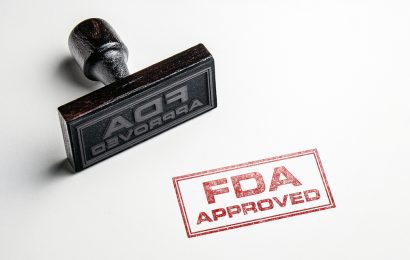On October 7, the US Food and Drug Administration (FDA) approved Juvisync, a combination pill composed of the diabetes drug sitagliptin (brand name Januvia) and the cholesterol-lowering drug simvastatin (Zocor). The medicine, developed by Merck, is the first treatment to combine a blood-glucose-lowering and a cholesterol-lowering drug in one tablet.
Januvia is a member of a class of drugs known as DPP-4 inhibitors. DPP-4 inhibitors work to lower blood glucose by blocking the action of an enzyme known as dipeptidyl peptidase-4, or DPP-4. DPP-4 breaks down hormones called incretins, which stimulate the release of insulin, slow stomach emptying, inhibit the release of glucagon (a hormone that signals the liver to release glucose), and enhance the survival and growth of the insulin-producing beta cells. With DPP-4 inhibited, the incretins have longer to carry out these actions.
Zocor is a type of drug known as a HMG-CoA reductase inhibitor, or statin. Statins block the action of an enzyme that controls the production of cholesterol; by slowing down cholesterol production, they improve the liver’s ability to clear cholesterol from the blood.
The combination of diabetes and high cholesterol increases the risk of conditions such as heart disease, kidney disease, blindness, and stroke. Guidelines from the American Diabetes Association recommend that people with diabetes who are over age 40 and have one or more other cardiovascular disease risk factors or those who have cardiovascular disease take a statin daily.
Juvisync tablets will be offered in combination doses of 100 milligrams of Januvia/10 milligrams of Zocor, 100 milligrams of Januvia/20 milligrams of Zocor, and 100 milligrams of Januvia/40 milligrams of Zocor to be taken once daily in the evening. The manufacturer also plans to develop tablets with 50-milligram doses of Januvia.
Pricing of the medicine will be the same as the price of Januvia alone (roughly $215 a month, according to this article in The Washington Post.) The tablets must be taken whole and cannot be split, crushed, or chewed before swallowing.
This medicine should not be used to treat Type 1 diabetes or diabetic ketoacidosis (a potentially life-threatening condition marked by a chemical imbalance in the body) and is not recommended for people who have moderate or severe kidney impairment or end-stage renal disease.
Statins such as Zocor can sometimes cause high blood glucose in certain people with Type 2 diabetes, but the risk is small and the FDA notes that it is outweighed by the reduction in cardiovascular disease risk provided by statins. The prescribing information will include a warning about this possibility. The most common side effects in people using Juvisync include upper respiratory infection, stuffy or runny nose and sore throat, headache, muscle and stomach pain, constipation, and nausea.
For more information, see the press releases on the Merck Web site or the FDA’s Web site or see Juvisync’s Web site.




